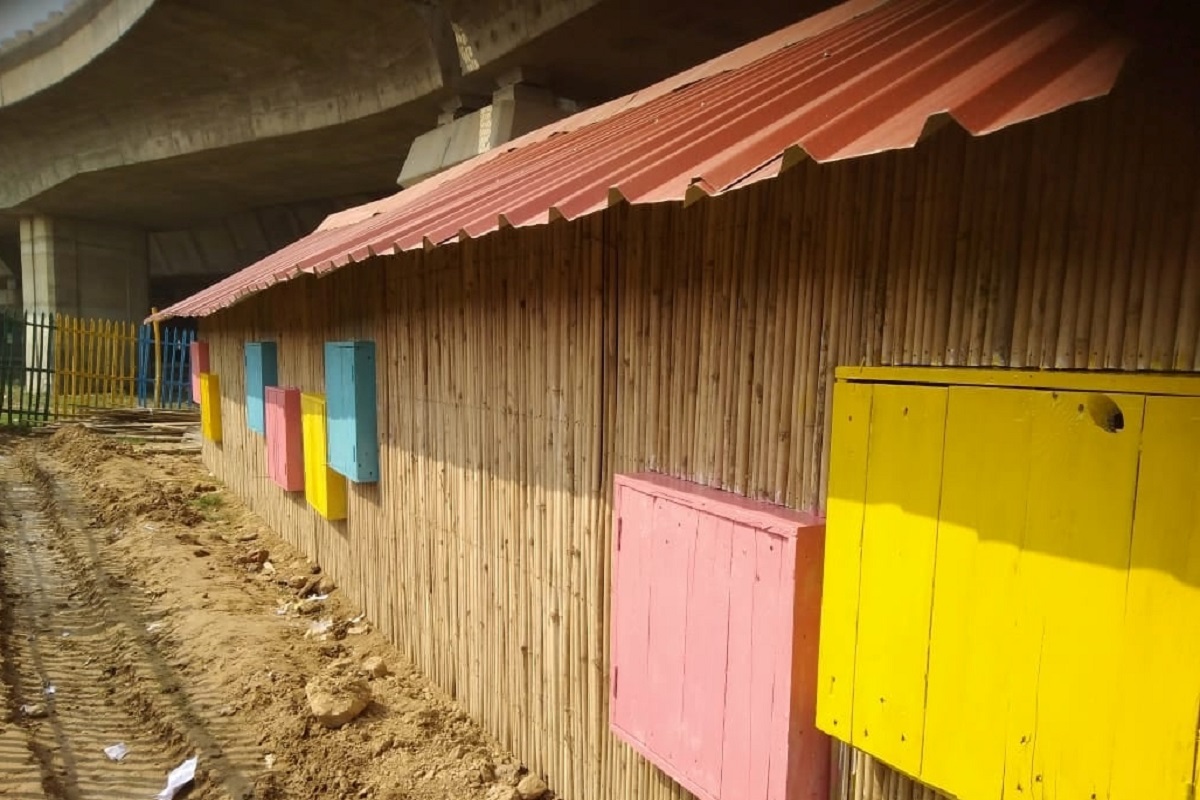As a part of climate friendly initiative, SEEDS (Sustainable Ecological & Environmental Development Society) along with Swedish non-profit, Better Shelter has built a transitional structure for the Van Phool, an open air community school in Mayur Vihar, East Delhi that has been operating under a flyover without any roof or walls since 2020.
The community school which caters to children of the Yamuna Khadar slum cluster has 200 active enrolled students. The structure has been built to promote a stable learning environment that protects students from extreme weather conditions such as heat, rain and cold as they return to classrooms.
Advertisement
Yamuna Khadar in Mayur Vihar, Delhi, where migrant communities live in unauthorised clusters located at the floodplains of river Yamuna, has an approximate population of 10,000 comprising migrants from Uttar Pradesh, West Bengal, and Bihar.
Around 4000 children live in this area—70 per cent of them are enrolled in government schools, but only 40 per cent attend classes. There are a high percentage of school dropouts, due to the distance between the slum cluster and the location of the school, as well as the lack of access to adequate education in government schools.
Van Phool community school managed by a local named Naresh Pal aims to bridge this gap. With approximately 20 lakh people living in 675 slum clusters across the national capital of Delhi, temporary shelters, with climate-friendly and readily available material which can be easily dismantled, transported and re-installed, are the need of the hour.
Sharing his thoughts on eco friendly structure, Sumeet Agarwal, Architect and Senior Director at SEEDS said, “We have used local materials and skills to work at scale. Conforming to this practice we have used bamboo as a cladding material on the Better Shelter Structure frame for the community school to provide a covered learning space that previously lacked these facilities, causing the children to study in the open.”
Van Phool community school also serves as a balwadi (creche) for children between the ages of 2 and 5, a non-formal education centre for school going students and school dropouts as well as a resource centre for the vocational training of the community.
Keeping in mind the unauthorised nature of settlements in the area, a temporary structure was agreed upon utilising materials accessible from the local market. The framework for the school was the “Structure” by Better Shelter that employs the modular steel frame.
Galvalume sheets were used for roofing, bamboo reed panels for walls and pinewood for doors and windows. The materials were chosen with the objective of generating a long-lasting, climate-adjusting, cost-effective, and simple-to-install structure.
“This school will have an immense impact over the years to come, enabling a brighter future for so many children in this community. We are pleased to see the fantastic results of the adaptation realised by SEEDS: by applying expertise and experience the SEEDS team has transformed the Structure frame into a school where children can come every day to learn and play. Sadly, we see a growing need for temporary, transitional structures like these as climate change is expected to drive more people into displacement. Only through collaboration across sectors and disciplines will we be able to face the challenges to come,” says Johan Karlsson, Managing Director, Better Shelter.
















